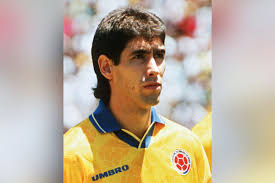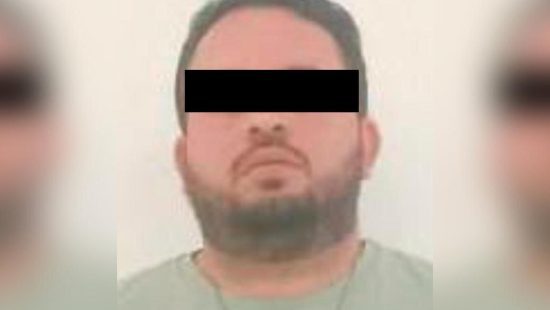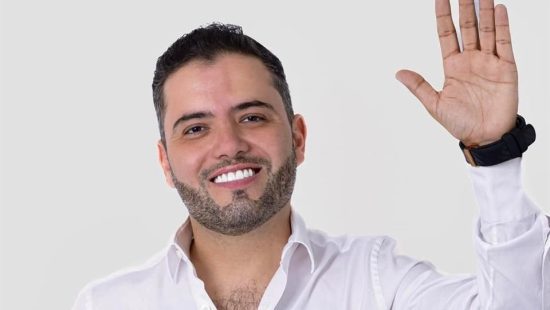“You need to let people know that there are resources available, and they shouldn’t be so hard to find,” Christina Navarro says. “You have to be on the street and promoting it.”
Anyone who enters one of the four Healing Urban Barrios offices will find a friendly face willing to help.
Started in 2017 by Christina Navarro, the nonprofit has grown from a one-woman endeavor to a 30-staff organization willing to lend a hand to those trying to re-enter life after incarceration, troubled youths trying to leave the gang life behind, or anyone else hoping to get their GED.
Their services are for anyone who needs a second chance or is looking for the right resources amid a sea of organizations offering similar services.
“Come through our doors and let us see if we can find your way,” is what Navarro, Founder and Executive Director, offers newcomers.
Finding Her Way
Growing up in a family with relatives who were incarcerated, where there was gang involvement, domestic violence, and substance abuse, Navarro found her way through education.
A mom at 15, she still managed to get her high school diploma.
“Education for me has been a confidence builder. I’m blessed when it comes to school,” says the mother of three. “I’m really booksmart. I could always find pleasure in a book.”
Still, it took her some years before she was able to go to college in her 20s, when she already had her second child. However, she managed to graduate and eventually worked for a nonprofit group.
In 2015, she began to envision an organization with programs and policies for those who needed a second chance. In 2017 she launched Healing Urban Barrios with another person, Maritza Garcia, with them working primarily out of Navarro’s car. In 2019 they opened their first small office. They now have 30 staff and four offices throughout Los Angeles: Lincoln Heights, East Hollywood, Pico Union, Koreatown/Wilshire area.
The purpose of the effort hasn’t changed: an organization where the community led and designed the programming focused on those formerly incarcerated or with gang involvement, and at-risk youth, basically “anyone who needs a second chance.”
She also wanted the community to see a leader that they could identify with, a role model who came from nothing, where they could see that despite struggles and challenges, “you can still make a dream come true.”
Along the way, she taught herself how to do grant writing and overcame her fear of failure.
“I’m not afraid to try things and fail,” she says, adding that she had to overcome her initial fear of failure.
“Come through our doors and let us see if we can find your way,” is what Navarro, Founder and Executive Director, offers newcomers.
Helping Others Find Their Way
Healing Urban Barrios offers others the chance to overcome those failures, and/or avoid new ones.
A lot of their work is with the formerly incarcerated who have everything against them when they come out of jails.
“The judicial system puts them in a box even when they come home,” says Navarro, who notes that the system creates a lot of money and there are a lot of interest in perpetuating that. “The system is made for you to go back.”
“We need to put the pathways to success on a silver platter,” she says to help people avoid falling behind bars again.
While many of their clients come from referrals, the work of the organization is still very much street-based.
“You need to let people know that there are resources available, and they shouldn’t be so hard to find,” she says. “You have to be on the street and promoting it.”
Outreach teams still go out every day, and even Navarro goes and talks to anyone who she thinks will benefit from their programs.
“We have to be out there for our community members,” she notes.
Once that community comes through their door, they will have a program tailored specifically for them.
“There is no one-size fits all,” Navarro notes. “It’s case by case basis. It’s how we adjust those practices for your rate of success.
“It shouldn’t be the individual adjusting to the organization, it’s us adjusting to the individual.”
It’s more difficult because it requires a lot of one-one mentorship to really understand and meet the needs of the person.
“They’re lost for a reason,” she says.
“Our job is to plant a seed of change.”
Whole Person Care
When people come through their door, they meet with a success coach who makes sure to introduce them to every staff member. It’s a way of letting them know that there are a lot of people willing to help them succeed, and to show that the organization is like a family.
Sometimes, they don’t see the individuals for some time, or ever. But their doors are always open if they do decide to come back.
Then, a case plan is designed for them based on honest conversations to find their needs: do they have to comply with probation/parole mandates? Do they need help with education, work or family reunification?
If children and other members of the family need help and services, they also work to provide them.
“It has to be whole person care, even for the needs of their kids,” Navarro says. “So now you’re working with the family.”
“One of their success stories is “Adrianna” who came from a very tough background and was homeless, with no one able to help her. Working with case manager Maritza Garcia, she eventually obtained her high school diploma.
Their programs range from violence prevention and gang intervention, workforce development to increase career opportunities, disaster preparedness, continued education for those 18-24 to complete high school diplomas, earn GEDs, or pursue vocational certifications, as well as dog grooming training to be employed in the industry, and CPR & First Aid Certification.
Along the way, they’ve helped thousands of people overcome obstacles that may have seemed insurmountable.
“One of their success stories is “Adrianna” who came from a very tough background and was homeless, with no one able to help her. Working with case manager Maritza Garcia, she eventually obtained her high school diploma in an alternative high school, graduating as valedictorian in her class. She’s now employed and about to get her Bachelor’s degree.”
Two years after their initial meeting, Adrianna told Navarro that her words that “no one can take away my education” had inspired her to continue.
“She learned the value of education,” Navarro says, who is living proof that education is the key to success.
Despite her success, Adrianna is still involved in many of the programs the organization offers because there always new challenges.
“She didn’t overcome things overnight. You have to walk with people on their journey,” Navarro says. “That’s why we’re here for the long run.”
With state, city, and foundation backing, Healing Urban Barrios continues creating pathways of success for anyone who needs it.
Despite hardships, “we prevail,” says Navarro, who credits their growth and own success to the efforts of her community-driven staff.
“We’re like a family,” she says. “And sometimes the love gets tested. There are tears and laughter, but we stick together. That’s how we’re here.”
“There is no healing urban barrios without the team and the community who believe in the mission and vision.
“It belongs to everybody.”
CONTACT
For more information visit,
www.healingurbanbarrios.org
(323) 332-2997








